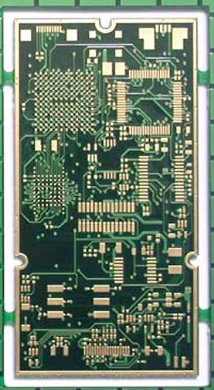In fact, flexible manufacturing models exist widely, such as the common customization in our lives. This kind of consumer-oriented and demand-based production mode is opposed to the traditional mass production mode. In flexible manufacturing, the test is the reaction speed of the production line and supply chain. The flexibility of FPC manufacturing can be expressed in two aspects
Text label: FPC
As mass production reaches the bottleneck, consumers' individual needs are becoming increasingly strong. Flexible manufacturing is produced in response to "mass customization" production. It has the characteristics of small batches and many varieties, and with its good planning, it has achieved efficient control of the production process. In fact, flexible manufacturing models exist widely, such as the common customization in our lives. This kind of consumer-oriented and demand-based production mode is opposed to the traditional mass production mode. In flexible manufacturing, the test is the reaction speed of the production line and supply chain. The flexibility of FPC manufacturing can be expressed in two aspects:
The first aspect refers to the flexible response capability of production capacity, that is, the small batch production capacity of machinery and equipment.

Its equipment utilization rate and productivity are very high, and the unit cost is relatively low. However, only one or a few similar parts can be processed, and it is difficult to cope with the production of multiple varieties in small and medium batches. As the mass production era gradually moves towards an era of production oriented to adapt to market changes, whether a multi-variety, high-quality, and low-cost product can be developed in a short time is the competitiveness of a manufacturing system. Flexible manufacturing can just meet this point, and it plays an increasingly important role in the development of manufacturing.
The second aspect refers to the agile and precise response capabilities of the supply chain.
In flexible manufacturing, the supply chain system responds to a single demand for production and distribution. From the traditional "production-supply-sales-people-financial-materials" of traditional "production-based sales" to "sales-based production", the instructions for production are entirely triggered by consumers alone, and their value The chain is shown as a completely directional activity with a clear personality characteristic of "people-financial-products-materials-sales". In this process, it not only poses a major challenge to the production machines, but also revolutionizes the traditional supply chain.
The "flexibility" of the manufacturing system can be reflected in:
1. Equipment flexibility-when a series of different types of products are required to be produced, the degree of difficulty of the machine to process different parts as the product changes.
2. Process flexibility-the ability to use different materials to manufacture a given part/product type.
3. Product flexibility-unique conditions to change the economy and speed of producing a new set of parts or products.
4. Work and rest flexibility-the ability to handle failures, and continue to manufacture a set of given parts/product types, using alternative routes.
5. Production capacity flexibility-the ability to maintain profitability in a series of different production volumes.
6. Expansion flexibility-the potential for gradual expansion in a modular manner.
7. Production flexibility-the volume of parts/product types that the system can produce.
Flexible manufacturing technology at this stage
1. Flexible Manufacturing System (FMS). Multiple fully automatic CNC machine tools are connected by a centralized control system and a material handling system, which can realize the processing and management of multiple varieties and small and medium batches without stopping the machine.
2. Flexible manufacturing cell (FMC). FMC came out and was used in production about 6 to 8 years later than FMS. It is composed of 1 to 2 machining centers, industrial robots, CNC machine tools, and material transportation and storage equipment. It has the flexibility to adapt to processing a variety of products.
3. Flexible manufacturing line (FML). It is a production line between a single or small-variety large-volume non-flexible automatic line and a small and medium-volume multi-variety FMS. The processing equipment can be general machining centers, CNC machine tools; special machine tools or NC special machine tools can also be used. The material handling system has lower requirements for flexibility than FMS, but has higher productivity. It is represented by the flexible manufacturing system in discrete production and the distributed control system (DCS) in the continuous production process. Its characteristic is to realize the flexibility and automation of the production line.
4. Flexible manufacturing plant (FMF). FMF is to connect multiple FMSs, equipped with an automated three-dimensional warehouse, and communicate with a computer system, using a complete FMS from ordering, design, processing, assembly, inspection, delivery to delivery. It includes CAD/CAM, and puts the computer integrated manufacturing system (CIMS) into practice, realizes the flexibility and automation of the production system, and then realizes the entire factory-wide production management, product processing, and material storage and transportation processes. FMF is the highest level of automated production and reflects the most advanced automated application technology in the world. It connects the automation of manufacturing, product development, and operation management into a whole, represented by the Intelligent Manufacturing System (IMS) that controls the material flow of information flow, and is characterized by the realization of factory flexibility and automation.